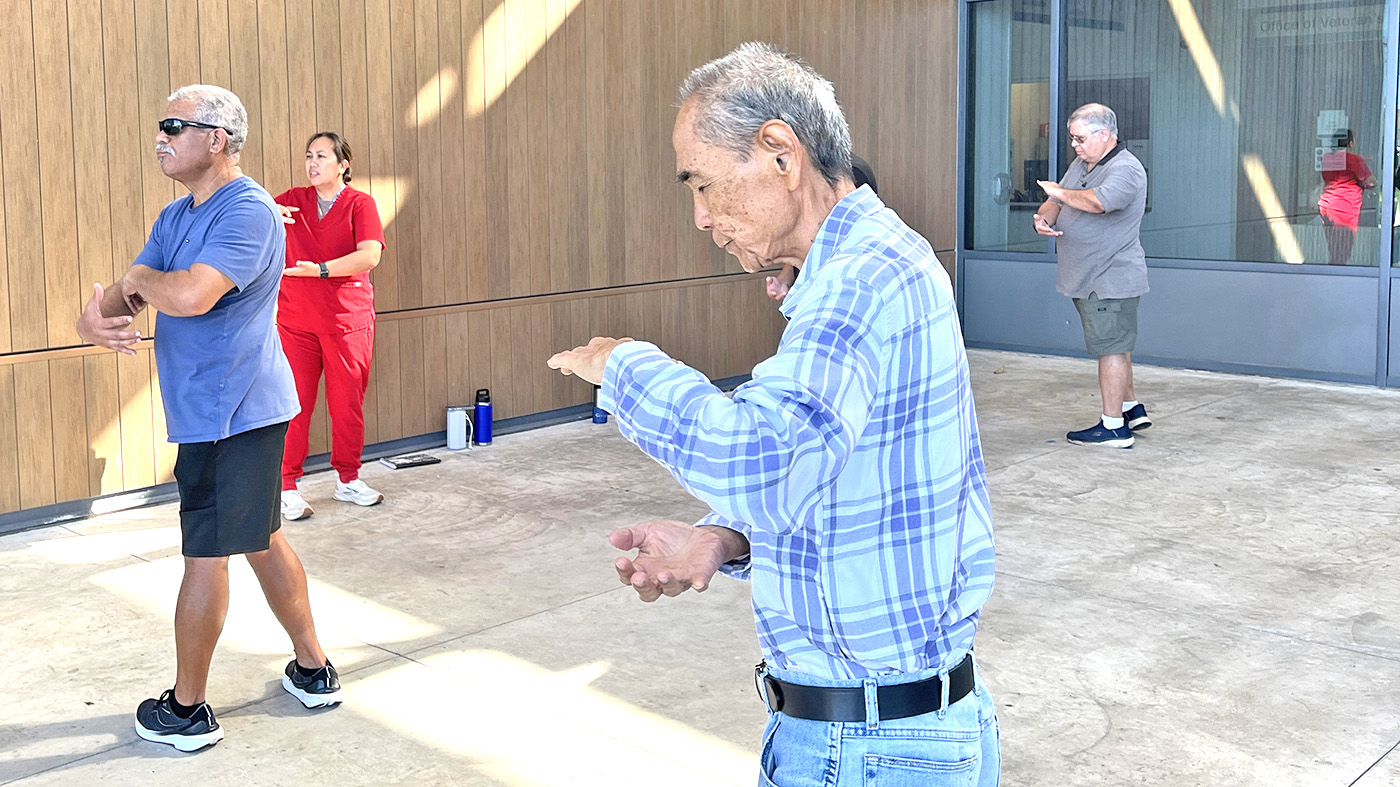Navy Veteran James Pantelas said he’s faced serious stigma in his life as a cancer survivor. When he was diagnosed with metastatic lung cancer 15 years ago, friends and relatives said: “Well, you knew this was coming.”
Although he quit four years before his diagnosis, Pantelas had been a smoker. After his diagnosis, one of his stepsons was so angry they did not speak for a few years. “He thought it was my fault. We’ve since worked that out, but it does have an impact on families.”
When he was diagnosed, he also blamed himself. “I’m not saying smoking doesn’t cause cancer. It does cause a lot of cancers.”
He thought about other potential cancer-causing exposures he’s had.
Pantelas was exposed to asbestos (which can increase risk of lung cancer) during his Navy service in the 1970s. He also raised pet birds. There is some evidence to suggest that birds’ dander can increase lung cancer risk.
Lung cancer patients should be treated with empathy
Whether or not a person has several non-smoking risk factors, smoked their whole life, or never smoked, the fact remains, he said: They should be treated with empathy. “
The idea that someone “brings lung cancer upon themselves,” isn’t backed by science. According to the American Cancer Society, as many as 20% of people in the United States who died from lung cancer in 2018 never smoked.
Some studies have shown that the lifetime risk of lung cancer among current smokers is around 11% for women and around 14% for men. Not everyone who smokes develops lung cancer.
The stress of family issues like those experienced by Pantelas can cause even more health problems. So can the stress of stigma by health care providers, he explained.
“I had a doctor say, ‘If I have a patient who tells me they never smoked and they got lung cancer, I just know they’re lying.’ That’s why empathy and reduced stigma are important.”
Atlanta VA doctor has “stigma free zone”
Pantelas, who beat the odds by surviving an aggressive form of cancer for more than a decade, gives a lot of credit to health care providers who are working to decrease stigma.
Dr. Drew Moghanaki, chief of the radiation oncology department at the Atlanta VA Medical Center, is one such provider. Pantelas said Dr. Moghanaki has worked to make his facility a “stigma free zone.” Those efforts, the Navy Veteran emphasized, are “outstanding.”
Pantelas intends to continue working to decrease lung cancer stigma alongside the organizations he works with, National Lung Cancer Roundtable, LUNGevity Foundation, and GO2 Foundation for Lung Cancer, which partners with the Veterans Health Administration (VHA).
The VHA National Center for Healthcare Advancement and Partnerships (HAP, formerly OCE and CCI), VHA’s partnerships experts, facilitated the partnership with GO2 Foundation and welcomes others interested in improving the health and well-being of Veterans.
For more information on HAP’s partnerships, please visit va.gov/healthpartnerships.
Dr. Tracy L. Weistreich is nurse executive for the VHA National Center for Healthcare Advancement and Partnerships.
Topics in this story
More Stories
Pacific Island VA holds two tai chi classes in Kapolei. The classes started virtually and moved to face-to-face recently.
Small steps, big impact! Prevent heart disease with simple habits like chair yoga. Breathe, move and feel better with this week's #LiveWholeHealth practice.
Access to health care and healthy behaviors all play a role in your ability to maintain a heart healthy lifestyle.






Thank you in advance!
I sometimes am appalled by the “bed-side manner” behavior of some physicians. As a precursor to the statement cited: “I had a doctor say, ‘If I have a patient who tells me they never smoked and they got lung cancer, I just know they’re lying.’ That’s why empathy and reduced stigma are important.” is a comment from the American Cancer Society that some 20% of persons with lung cancer had never smoked.
This is not to flog a dead horse, but what gives? How can a physician be ignorant of the information? Where a patient presents with symptoms of a disease, it is obligatory to record the information for the purposes of evaluation, not to indulge in the prejudices of the day.
This begs the notion of kicking a sick child.
Many of my friends talking about cancer and they blame fluoride for cancer. But Fluoride does not cause cancer. It’s a complete myth.
Very well said. So many elder vets grew up in a world where no one considered smoking a health problem. In fact we heard over and over it was a good way to relax, etc on Ads
Unfortunately some elder smokers have really struggled trying to quit